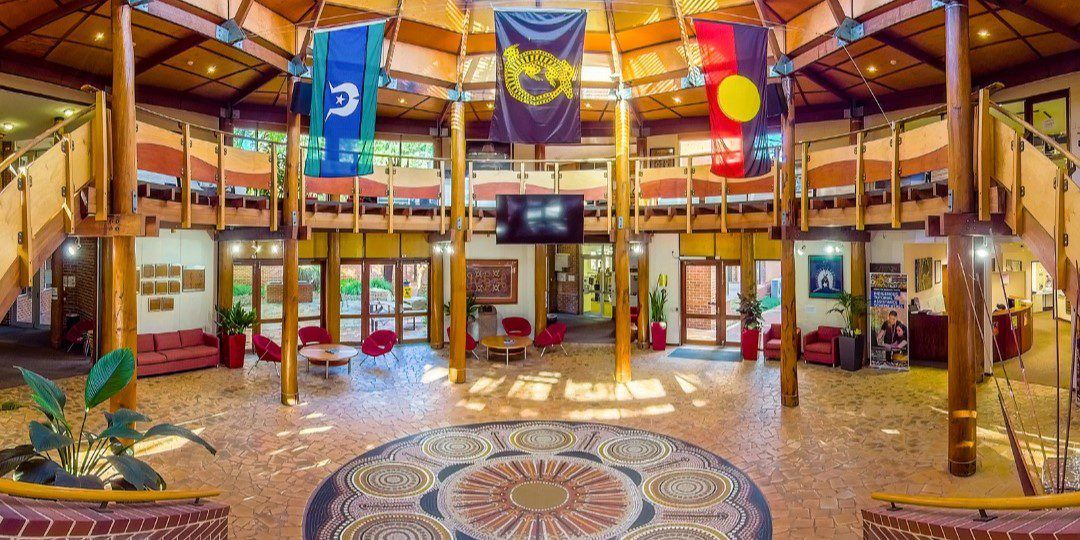Centre for Aboriginal Studies
Our Centre for Aboriginal Studies is a hub for education and research, and a place where all Aboriginal and Torres Strait Islander students can feel connected and access culturally safe support services.
At Curtin, we are committed to embedding voices and perspectives of First Nations peoples at the forefront of our decision making to create an environment in which everyone thrives.
We first began delivering education programs to Aboriginal and Torres Strait Islander communities in the 1970s. Since then, First Nations and non-Indigenous staff and students at Curtin have continued to work together to shape learning, teaching and research.
Our ongoing commitment to advancing reconciliation and contributing to an Australian society that values and respects Aboriginal and Torres Strait Islander culture and heritage is embedded in our Curtin 2030 Strategic Plan.
Curtin University acknowledges Aboriginal and Torres Strait Islander people, the First Peoples of this place we call Australia, and recognises them for caring for Country for more than 60,000 years. We are honoured and grateful for the privilege to maintain campuses in Boorloo (Perth) and Karlkurla (Kalgoorlie). We pay our respects to Elders past and present as Custodians and Owners of these lands. We recognise their deep knowledge and their cultural, spiritual and educational practices, and aspire to learn and teach in partnership with them.
We also acknowledge First Nations peoples connected with our global campuses. We are committed to working in partnership with all Custodians and Owners to strengthen and embed First Nations’ voices and perspectives in our decision-making, now and into the future.


Our Centre for Aboriginal Studies is a hub for education and research, and a place where all Aboriginal and Torres Strait Islander students can feel connected and access culturally safe support services.

Our Aboriginal and Torres Strait Islander student support services aim to help students settle in and succeed at Curtin.

We are committed to increasing the number of Aboriginal and Torres Strait Islander people employed at Curtin.

We facilitate pathways for Aboriginal and Torres Strait Islander school students to access higher education. Many of our outreach initiatives are run by Curtin AHEAD, including tailored experiences like the Follow the Dream program.

We feature Aboriginal artwork across our campuses and are the proud custodian for the Herbert Mayer Collection of Carrolup Artwork.
We also host events and celebrations for significant occasions, including NAIDOC Week.

Our Indigenous research programs aim to improve the wellbeing and support the aspirations of Aboriginal and Torres Strait Islander people, underpinned by Indigenous knowledges, practices and perspectives.

We engage with community through our outreach programs and partnerships with Indigenous organisations, including Polly Farmer Foundation, Winyama and the Indigenous Desert Alliance.
Our Indigenous Cultural Capabilities Framework (ICCF) informs how we embed First Nations knowledges at Curtin. ICCF activities are built into courses for students, and cultural immersion education and training experiences are available for staff, students and community.
We encourage and support our curriculum designers and teaching staff to integrate First Peoples’ knowledge, perspectives and experience into their programs of study.
The Nowanup Bush Campus provides an immersive learning space for students and staff on Nyungar Boodjar (Country) in the Great Southern region of Western Australia.
All Curtin undergraduate and postgraduate students can take an on-Country learning unit at Nowanup as an elective, with no prerequisites.


Learn the dynamics of different societies and cultures, study the written word and its applications and explore and discuss contemporary issues in today’s society.